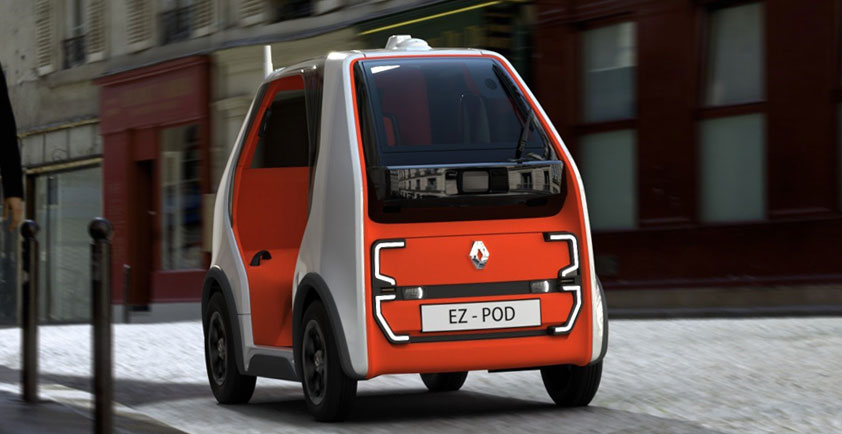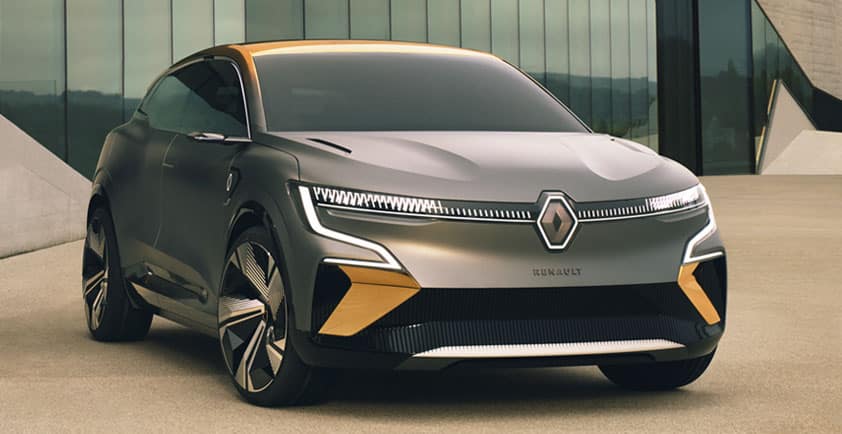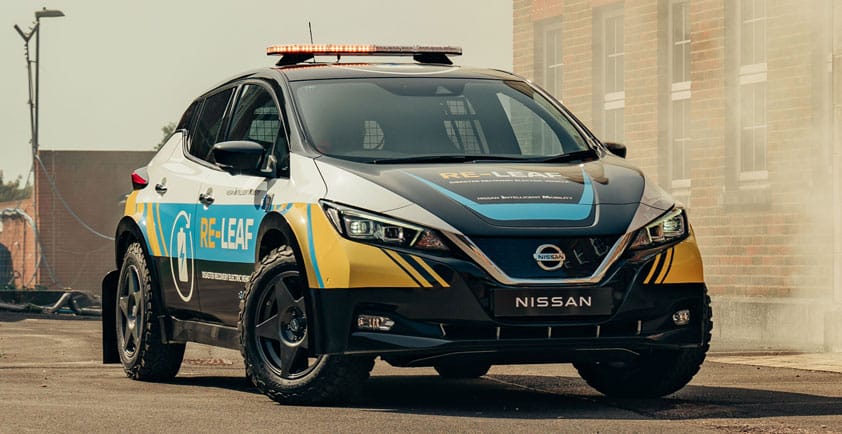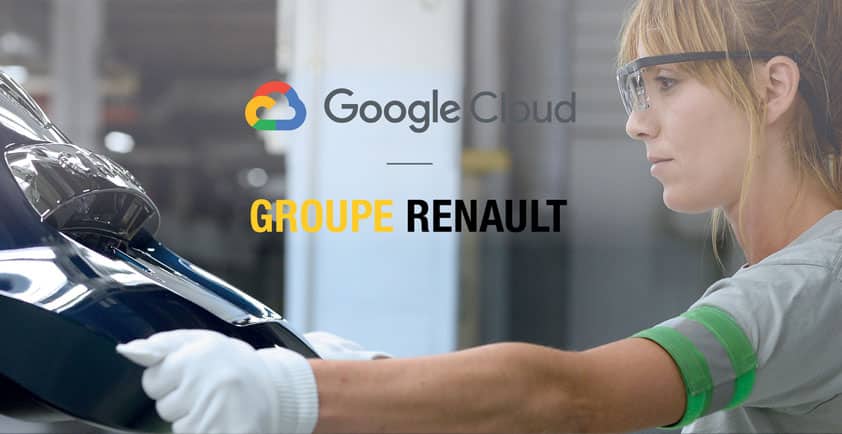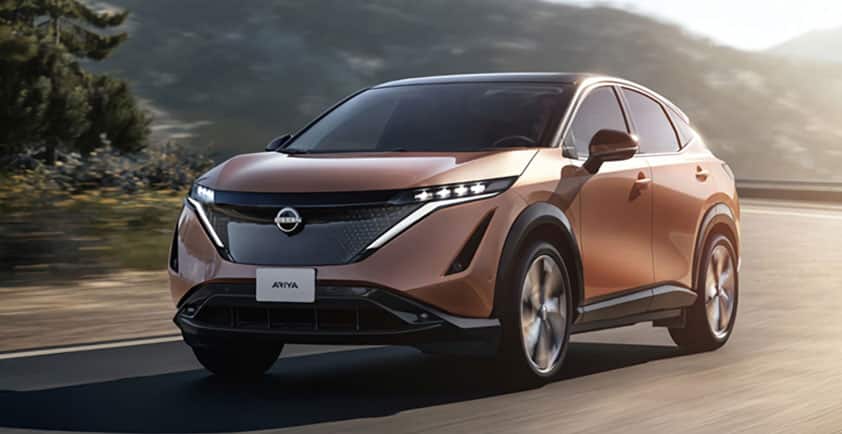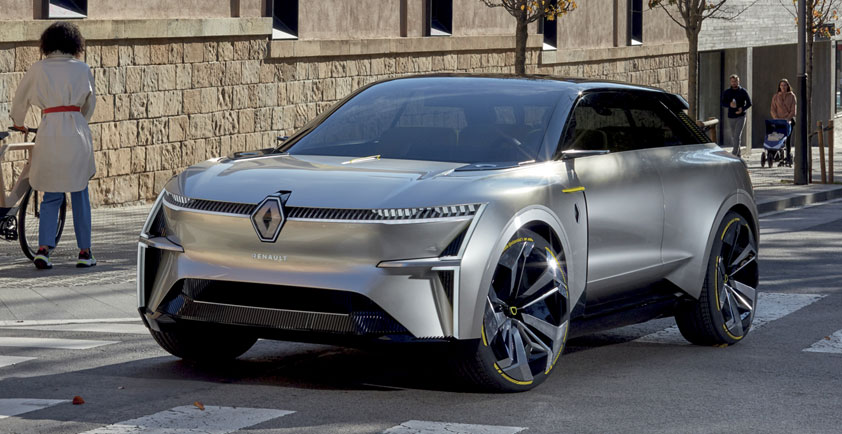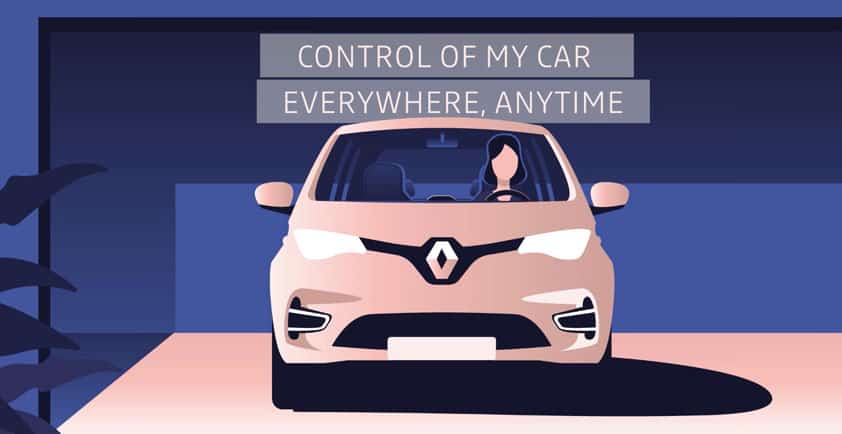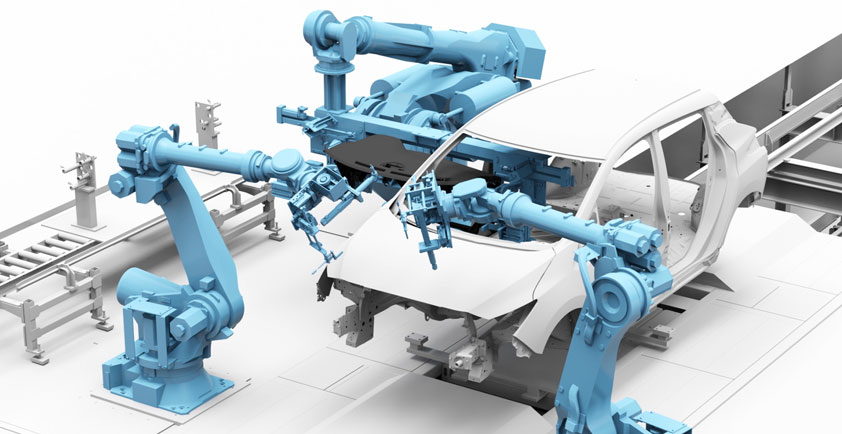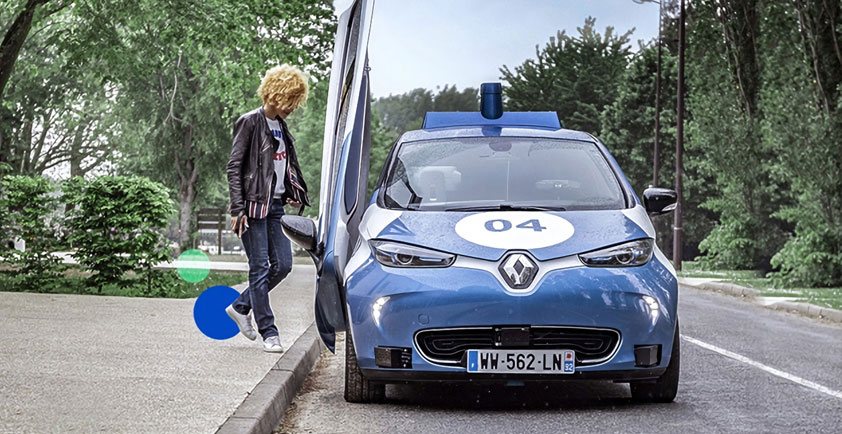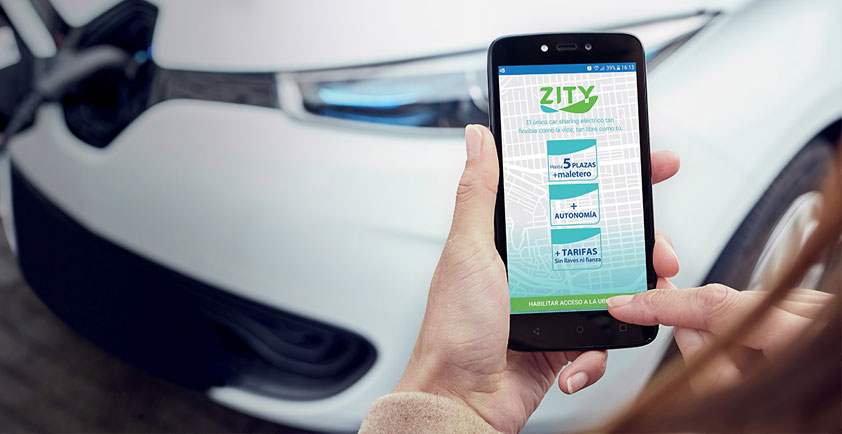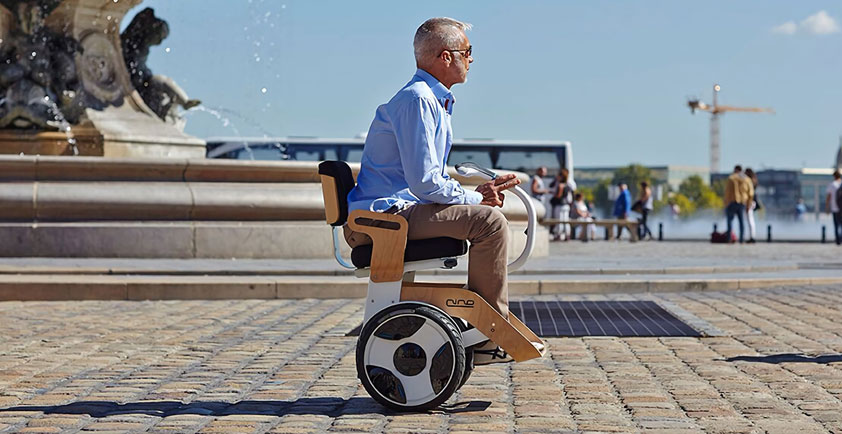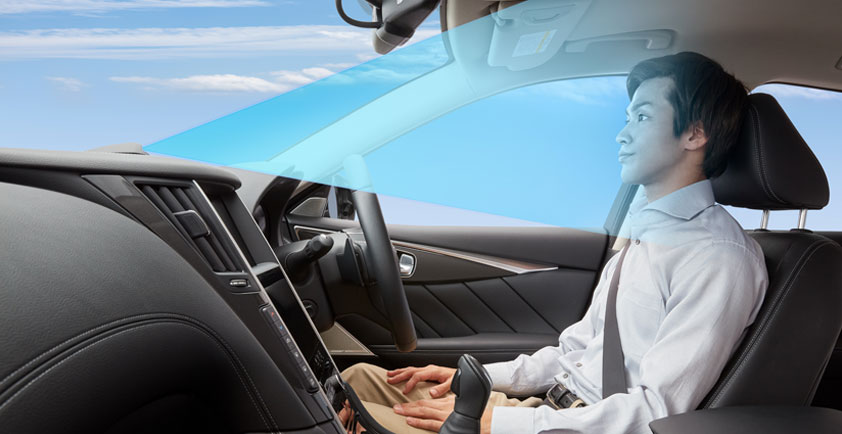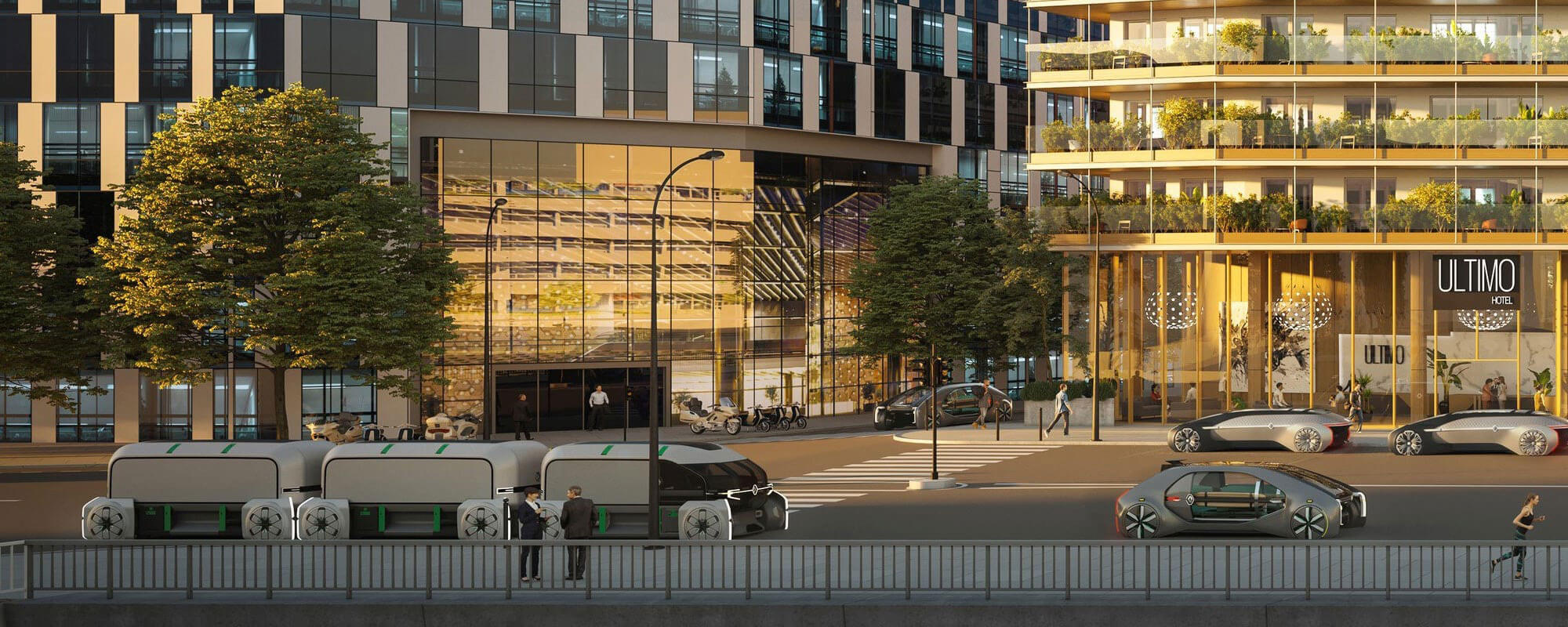

VIVA TECH: GROUPE RENAULT PRESENTS ITS CONSOLIDATED VISION OF SHARED MOBILITY
In 2018, Groupe Renault introduced 3 concept-cars as its vision of the mobility of the future.
At VIVA Technology, Groupe Renault is making this vision a reality with new vehicles, partnerships and experiments that are generating today the mobility of tomorrow:
>> A car-on-demand service using autonomous electric Renault ZOE Cab prototype vehicles, as part of the Paris-Saclay Autonomous Lab project
>> A first trial of the Renault EZ-FLEX last-mile delivery vehicle with Groupe La Poste
>> An exploratory autonomous vehicle, the Renault EZ-POD, as first and last kilometer mobility complement
>> A partnership with KLEPIERRE to offer innovative mobility services in shopping centers
As the pioneering electric vehicle leader in Europe, Group Renault is sketching out easy-to-live mobility available to all.
To prepare this new era of sustainable mobility for all, Groupe Renault is working on four strategic areas of innovation that are key to transforming the industry: electric mobility, connected mobility, autonomous mobility and new mobility services.
The entire value chain, including vehicles, fleet management, mobility platforms and client applications needs to be expanded. Groupe Renault will be presenting it at VivaTech.
"At a time when mobility has never been a more crucial global issue, our role as a longstanding manufacturer of all types of vehicle is more important than ever. We have a responsibility to propose innovative solutions to address urban environment saturation and to stake out the smart city of the future. Alongside cities, startups, outstanding partners and public authorities, we see our leadership as a key part of a new history, the history of electric, connected, autonomous and shared mobility serving the public at large. Thierry Bolloré, CEO, Groupe Renault"
INNOVATIVE EXPERIMENTS FOR PEOPLE TRANSPORTATION AND GOODS GOODS
Officially inaugurated on 15 May 2019, Paris-Saclay Autonomous Lab is a project initiated by Groupe Renault, the Transdev Group, IRT SystemX, the VEDECOM Institute and the University of Paris-Saclay. Its purpose is to devise and test a comprehensive autonomous transportation system comprising autonomous vehicles, a supervision system, connected infrastructure and customer applications. Experiments will be conducted to determine the requirements for scaling up an autonomous mobility service.
As part of this project, Groupe Renault operates an on-demand car service with electric and autonomous Renault ZOE Cab prototype vehicles on the Paris-Saclay urban campus.
The service is designed to provide many pick-up and drop-off points, which do not interfere with other traffic and are located near (never much more than 300 meters from) the most frequented campus areas. If needed, the vehicle stops on the way to pick up another passenger travelling along all or part of the same route. People travelling to the campus by public transportation will be able to use the service to freely move around the site.
This first stage of the Paris-Saclay Autonomous Lab project is one of the SAM experiments selected by the French government on 24 April 2019 following the EVRA call for projects under the Investments for the Future (PIA) program. The SAM experiments are part of France's national autonomous vehicle development strategy. They are designed to familiarize local citizens and stakeholders with these systems, expand their use and build a regulatory framework that notably includes the safety approval process.
The urban delivery ecosystem involves logistics companies, local and authorities, cities, infrastructure and automakers. Renault EZ-FLEX is an experimental compact, electric and connected vehicle designed for last-kilometer urban deliveries. A first trial will be carried out with Groupe LA POSTE to test the vehicle and its services. The trial will involve all ecosystem stakeholders and is designed to develop a common vision covering urban goods mobility.
The vehicle is equipped with sensors to track their use. This information will be combined with feedback from operators during the trial. A broad range of data will be collected: geolocation, mileage, autonomy, door opening, speed, stops, etc. The data will be transferred in real time or once a day via the vehicle’s connectivity in order to gain an overview of the vehicle’s actual use in day-to-day operation. The analysis of the data, together with feedback from operators such as LA POSTE, will enable Renault to design vehicles that are better suited to changing urban logistics practices.
With these experiments, Renault inaugurates a further program to prepare and design the innovations of the future. The collaborative approach taken by the two companies demonstrates of the new agile development processes adopted by both groups and will be based on real-time user feedback.
As demand for last-kilometer delivery soars, the diversity of rear modules is unlimited. Renault EZ FLEX was designed to adapt to the needs of the future. Its interchangeable rear modules can be connected to the vehicle. VivaTech provides an opportunity to meet stakeholders who can provide further input to the smart solutions during the trials.


NEW SOLUTIONS FOR CHANGING PATTERNS OF USE
Groupe Renault continues to explore new mobility solutions with EZ-POD, an exploratory autonomous vehicle that can be used to provide first and last kilometer mobility.
The two-seat autonomous connected all-electric Renault EZ-POD has a distinctive small footprint and high agility to provide mobility within closed sites such as parking garages, hotels, shopping centers, campuses and in urban settings such as city centers, neighborhoods and apartment complexes. The Renault EZ-POD, which has adjustable speed, is designed for transportation over short distances and serves as complementary mobility for all.
The Renault EZ-POD, designed primarily as a robotized automated platform to provide first and last kilometer transportation of people, can also be provided in a goods delivery version.
MOBILITY SERVICES THAT HAVE ALREADY PROVEN THEMSELVES IN URBAN SETTINGS
An increasing number of consumers – especially young people living in urban and suburban environments – are choosing to share rather than own.
Groupe Renault supports the sharing economy and has begun to operate new urban mobility services.
> In Paris, Renault and ADA launched a car sharing service with a fleet of free-floating electric cars, Moov’in.Paris by Renault, in 2018. Customers can use a dedicated app to book a Renault ZOE or a Twizy, particularly for very short trips.
> In Madrid, Renault and Spanish infrastructure operator Ferrovial Servicio provide the Zity service, which gives users access to a fleet of 650 Renault ZOE electric cars. They can be used to travel anywhere, park free of charge and keep the vehicle during a stop (appointment, errand or movie). The Group is using Zity to test an ultra-flexible, standout service.
> Marcel is a service offered by VTC, a Groupe Renault subsidiary since 2017, which has more than 2,000 drivers. On its platform, Marcel provides an all-electric service called e.co, which uses a Renault ZOE fleet.
> In southern France, Renault Mobility opened its electric car sharing service in the Greater Nice Côte-d’Azur region in 2019. The service makes 57 Renault ZOE rental vehicles available 24/7 in four municipalities.
A partnership with KLEPIERRE, announced on 13 May, takes the Renault Mobility service to a new level: customers of these shopping centers will benefit from an innovative carsharing solution accessible via the mobile app Renault Mobility. This shared mobility experiment starting in the shopping centers at Val d’Europe (Paris region), Blagnac (Toulouse) and Bègles Rives d’Arcin (Bordeaux). Deployment will then be extended across France. As part of their partnership, Groupe Renault and Klépierre are also developing multi-use charging hubs for electric vehicles, to be known as “Charging Houses”. These stations will be installed by Groupe Renault in the car parks of shopping centers located in high population density areas and will be used primarily by visitors during the day and residents at night and on weekends. The service will enter service in thirteen malls in France by the end of the year and will then be rolled out across Europe.
Innovation is a central focus of all Groupe Renault initiatives.
The solutions, services, concepts and research areas presented at VivaTech reflect Groupe Renault’s determination to develop new shared mobility services for the public via simple, attractive and customized applications.
